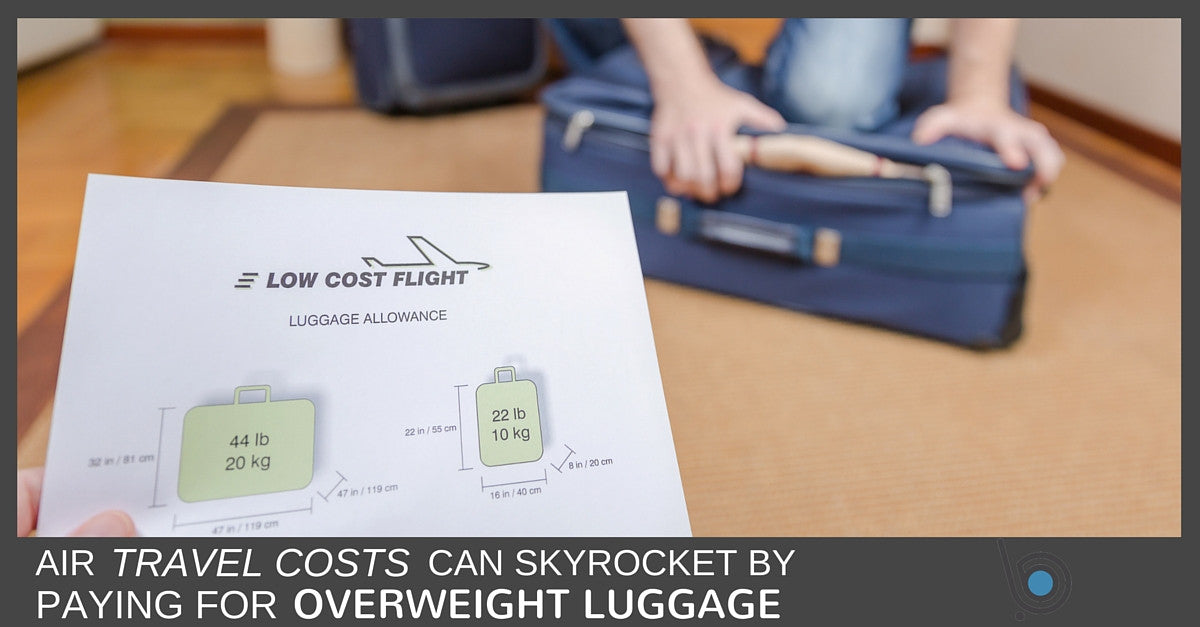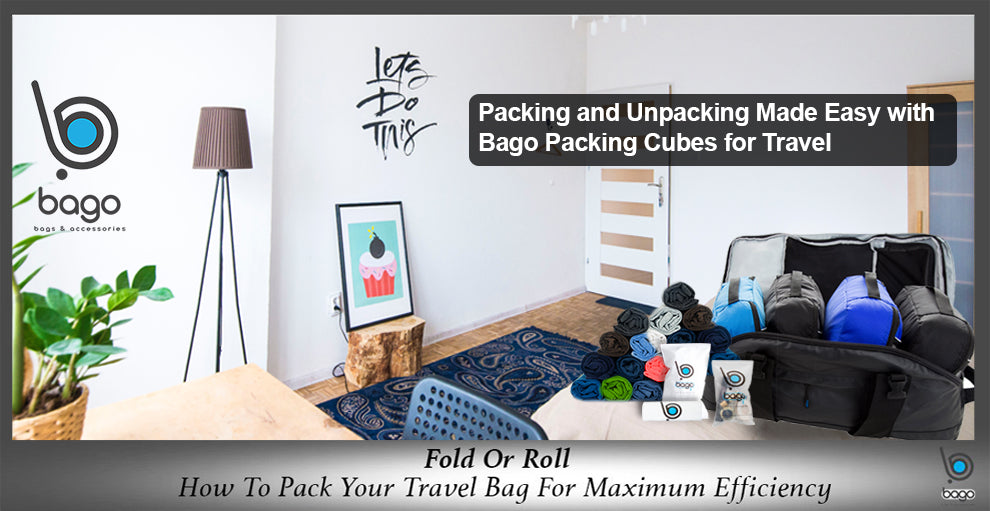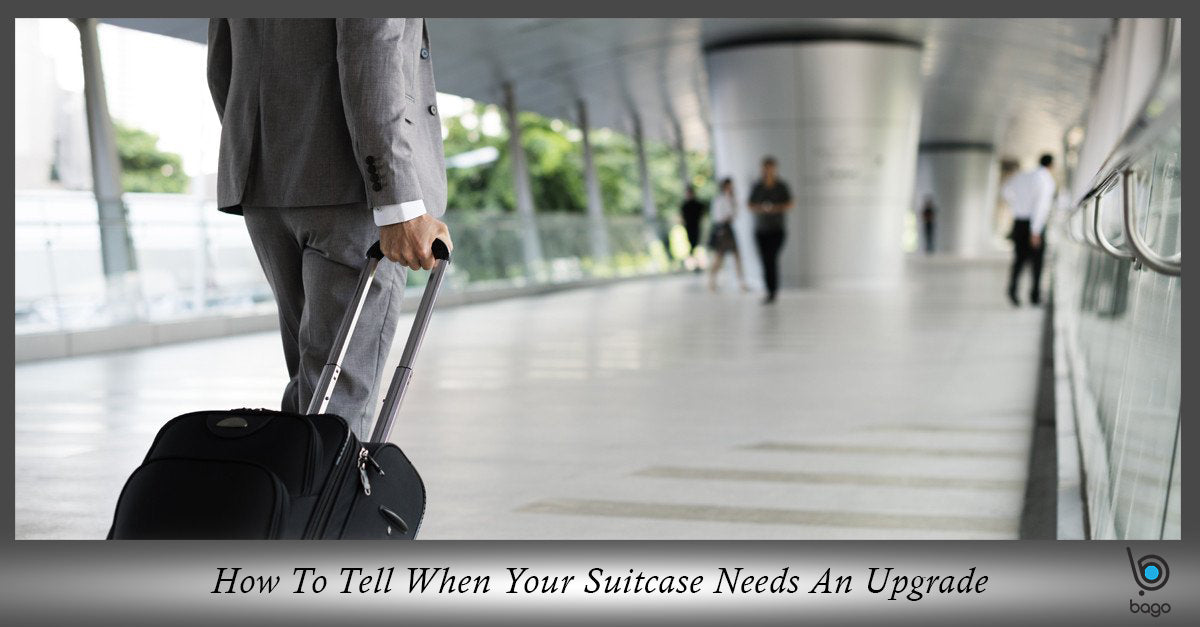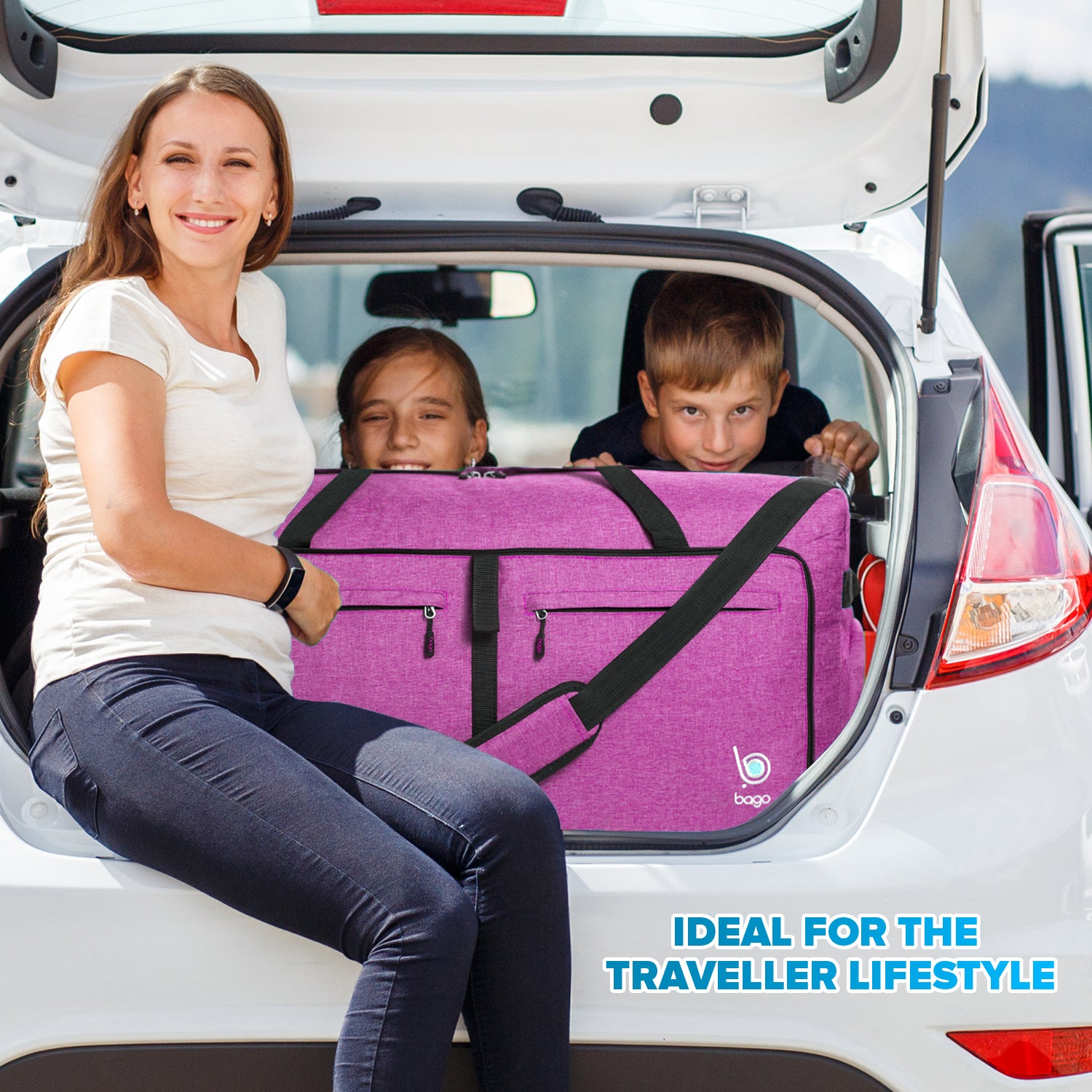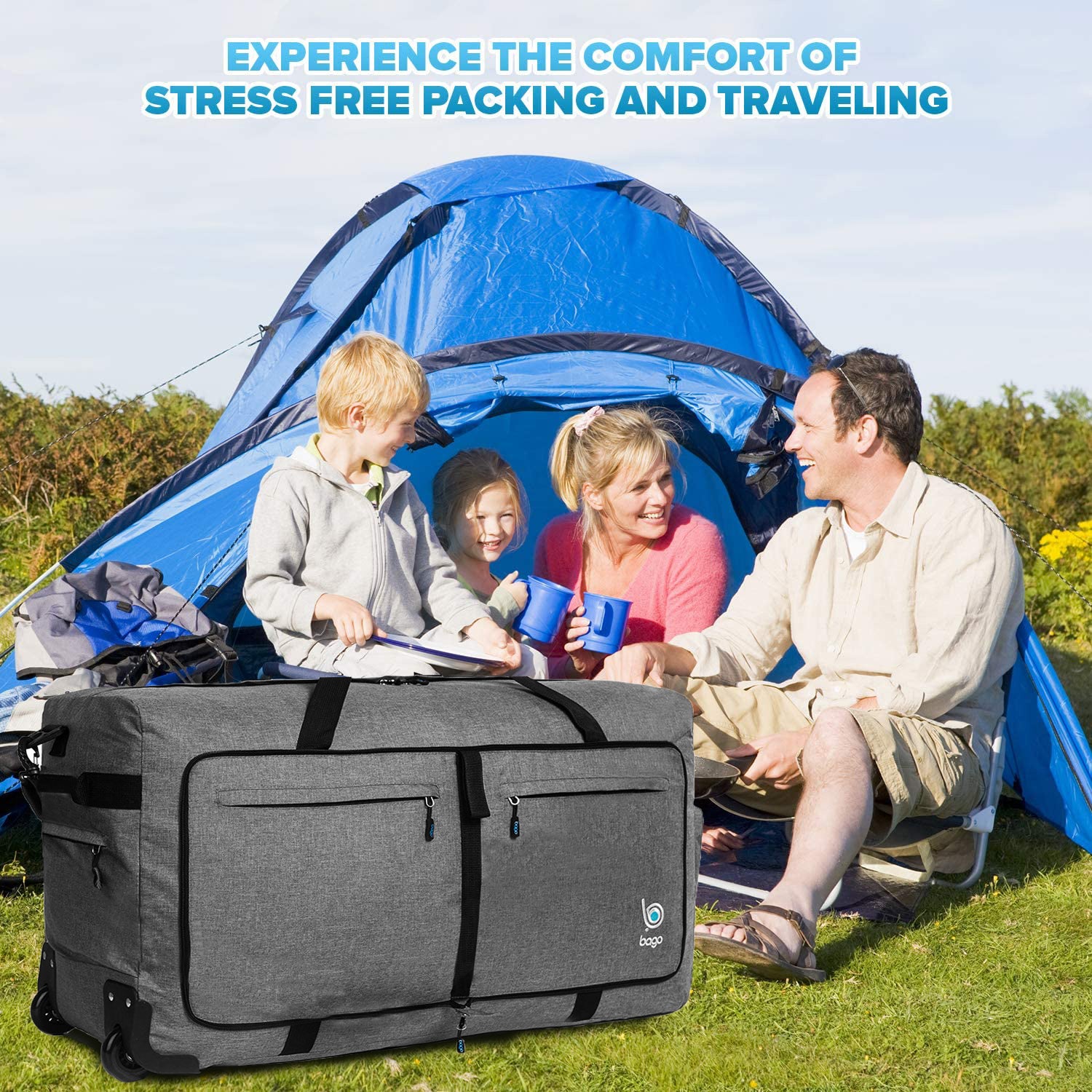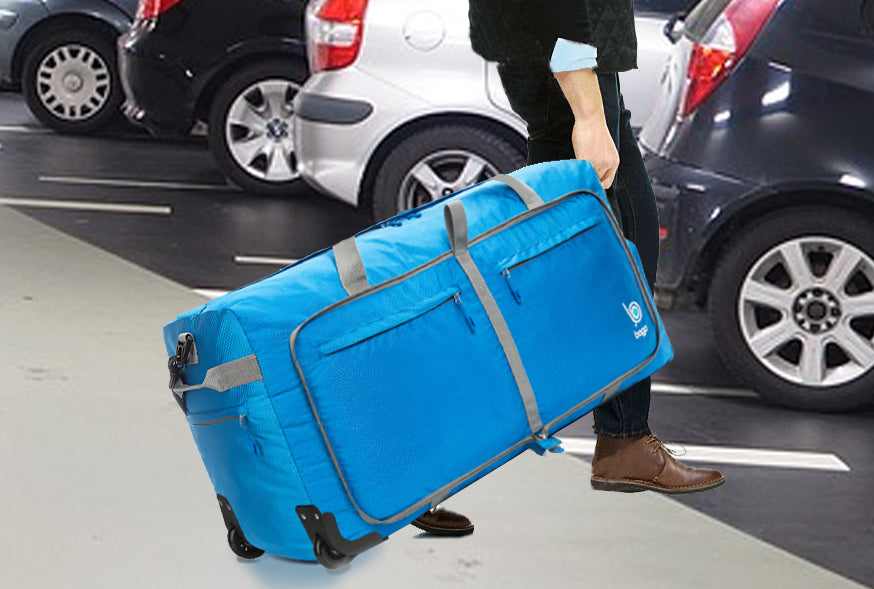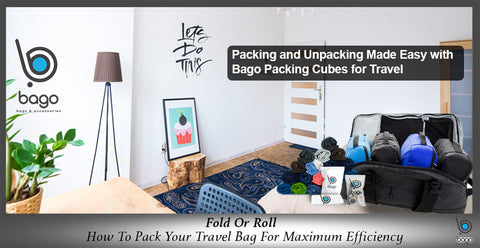You’ve packed your bags, printed your boarding passes and have just arrived at the airport. After you say your “goodbyes,” you head to the check-in counter. When you hand over your I.D. and ticket confirmation, you’re asked to put your bag on the scale. You think you’re all set until the ticket agent tells you you’re a whopping 12 pounds over the allotted baggage weight limit! Even after you try stuffing items into your carry on, you’re still above the limit. You suddenly learn you must pay $50 per overweight bag. Now what?
Instead of trying to solve this situation once it’s too late, get ahead of the problem by avoiding excess and overweight charges in the first place. Follow these five tips to save yourself money and stress when you travel.
Know Your Limits
Before you even think about putting a piece of clothing or a pair of shoes in your checked bag, make sure you know exactly how much you can bring.
Most airlines offer a free carry-on bag. Some do not. Airlines may have weight or size requirements that need to be met before you can bring your carry-on onto the plane.
Airlines have all different policies on checked bags. While some still allow one free checked bag, many do not. Once you find what the price is, make sure you are aware of exactly how much it can weigh, and size it is allowed to be.
The weight requirement is the total weight requirement; this includes the weight of the bag itself and everything inside of it.
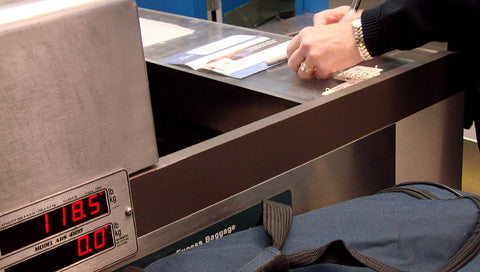
Weigh Before You Go
Don’t leave it till you get to the airport to find out how much your bag weighs. Instead of guessing, know for sure exactly how much your bag weighs before you leave home.
There are two easy ways to do this.
Handheld luggage scales are low-cost ways to see how much your bag weighs. Small in size, the digital scale clips onto the handle or grip of the bag. Lift it up using the handheld scale, and read the bags’ weight.
If you find yourself without a handheld scale, simply use a normal scale.
Place your scale on a hard, flat surface. Weigh yourself and record it. Step off the scale and hold the bag. Weigh yourself again while holding the bag. Subtract your body weight from the weight of you and the bag. The number you’re left with is how much your bag weighs.
Start Off Light
In order to keep your bag lightweight, the best option is to start off with a lightweight bag.
Choose your luggage so that it will fit all your needs: sturdy, durable, large capacity, versatile and, most importantly, lightweight.
This folding travel duffle is perfect for lightweight travel needs. Available in two sizes at 53 and 85 liters, this bag weighs in at 1.3-1.5 pounds (depending on size selected).
In case you find yourself needing to stow it away during travel, this duffle folds into itself for easy storage.
Bring along a second one and unfold it in case you end up at the ticket counter with an overweight bag. Use this as a backup to avoid any overweight charges you might accrue.
Use Packing Cubes
Perfect for controlling exactly what you’re packing, packing cubes are a great option to avoid excess or overweight charges.
When packing each cube with individual outfits per day or activity, it's easy to add or remove a cube from any bag that needs to weigh less or have weight transferred should you find yourself with an overweight bag. Shifting weights between bags had never been easier.
If you find that one of your bags is still overweight, simply take one cube with you by it’s carry handle as a carry on and put it back in your luggage once you arrive at your destination.
Be Aware Of Additional Costs
Some items are not allowed in the cabin on the plane, and must be packed below. These items sometimes have extra fees.
Bringing a stroller? Check with your airline if it is included with your ticket price, or if you’ll need to pay a little more to bring it along.
Oversized items such as large instruments in cases, skiing and snowboard equipment, and other bulk items will need to be checked, and may be considered “heavy.” Will it be cheaper to ship it to your destination ahead of time or is it possible to have it stowed somewhere under the plane?
Make sure you know the answer to all of these questions before you leave for the airport.
Doing your research before your next trip can save you not only money, but the hassle and embarrassment of having to repack your bags at the ticket counter.
Find out how much your bags can weigh, look at what you need to bring, and pack it appropriately in the correct lightweight bags. By following these five tips, you can avoid excess or overweight baggage charges on your next trip.







